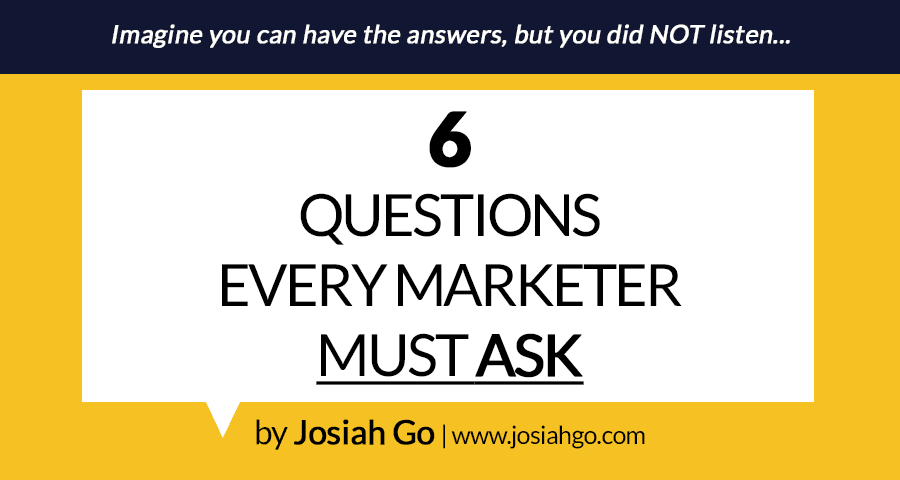
Stephen Tiu is the Sales Director of Johnson and Johnson Philippines. Prior to this, he was Head of Key Accounts in J&J Philippines, Head of Channels in J&J Malaysia, and worked in Shopper Marketing in J&J China. Steve won the Mansmith Young Market Masters Awards (YMMA) in 2013. He will share more trends during the 10th Market Masters Conference on April 3, 2019 in SMX Aura.
Q1: What have you observed as trends in the size and format of new retail stores and why do you think this is happening?
A1: The Philippine FMCG market is still dominated by supermarkets and sari-sari stores, contributing to about 75% of value sales. In urban areas, we will continue to see a shift towards neighborhood supermarkets, convenience stores, and community self-service drugstores in the next few years. This is due to changing shoppers preferences looking to spend less time in getting their groceries and more time with their families at home. Due to the smaller selling area, stores’ ranging (# of SKUs carried) will be limited to the popular products and its aisles easier to navigate. With regard to convenience stores, its relevance and proliferation will continue to increase due to growth of the BPO industry with its round the clock operations. As for self-service drugstores, these stores will not just bring better accessibility to medicines but also bring health care, personal care, and beauty care products closer to the community. Outside urban areas, we will continue to see the expansion of shopping malls with supermarkets, drugstores, and personal care stores inside making it a one stop shop.
Q2: What other new collaborations or alliances do you foresee happening or will happen between or among different sectors to expand and even occupy white spaces in the retail business?
A2: With the expected rapid e-commerce growth in the coming years, we will also be seeing the rise of the “omni retail channel” whereas current brick and mortar retailers will go online. And possibly, local online retailers opening brick and mortar stores. In this area alone, there are a lot of potential partnerships that can come up. This is true not only in the commercial front but also with supply chain companies as well.
Moreover, in general, the Philippine retail sector will continue to consolidate as national chains will partner or acquire regional and local players. This is due to a few factors: local players know their shoppers better, and national players also need scale to operate outside key trading centers. Especially in areas like logistics.
The Philippine retail business will continue to be exciting as chains open new stores, new players coming in, and with the Retail Trade Liberalization Law being looked into.
Q3: Middlemen, like wholesalers, are being squeezed out by more organized principals. What kind of wholesalers are progressing? What kind are deteriorating?
A3: Same as in other industries, “pure traders” are squeezed out due to better supplier accessibility and distribution structure in the marketplace. However, wholesalers that offer value addition services to its customers, beyond just pricing and terms will continue to grow. Aside from good pricing, terms, and reliable customer service, these wholesalers provide business system support, retail automation, inventory and order management, and marketing and promotions know how. They also help their customers gain access to promotions. Wholesalers that work closely and help their customers grow their business will continue to be relevant as they enjoy their customers’ trust and loyalty.
Q4: How about distributors – what new trends are happening in terms of attaining effectiveness and efficiency in distribution?
A4: Due to the Philippines’ archipelagic nature and accessibility limitations, the relevance of distributors will continue to be high. The challenge is, distributors will have to continually grow revenue, minimize bad debts, and inventory losses, and at the same time, control its 2 largest cost elements, manpower and fuel. Distributors that invest in people training and development, sales effectives automation tools, and alternative distribution models are able to achieve sustainable profitable growth. They have to make sure they have close working relationships with both customers and principals.
Some distributors now also offer other services such as being delivery providers to provincial outlets of national chains, trucking providers to manufacturers, distribution center of government and private sector relief goods, and fulfillment centers for e-commerce deliveries. Some distributors have also engaged in importing and are building their own brands in the market.
Q5: There is a shift in some consumers eating in convenience stores rather than in fast food. Why do you think this is happening?
A5: Convenience stores are consciously investing in dining and serving prepared meals that are comparable to fast food chains and restaurants. They are allotting precious space for tables and chairs making dining enjoyable and experiential. The variety is wide, is perceived to be healthier, and they can find their preferred brand of drinks. All these at the same cost, if not cheaper.
Down the road, I see convenience stores offer even more kinds of food like fresh salad, organic food, healthy snacks, or even home-cooked style meals especially for travelers. In residential neighborhoods, they might also offer pre-ordered meals.
Q6: What are some latest developments in shopping behavior and what are triggering these?
A6: Aside from e-commerce, we will continue to see expansion in specialty store formats such as baby and mom stores, and organic food product stores. This is due to the rising middle class and more Filipinos now look for higher order benefits. Also, there will be a lot of demand for more imported goods seen by millennials in social media. You can see that happening in the fashion and skin care businesses.
Q7: The First Moment-of-Truth (FMOT), that is, at the store level, has been superseded by the social media phenomenon or Zero Moment-of-Truth (ZMOT), which is online. How is customer marketing changing to be the preferred supplier of your key accounts given this movement toward online awareness?
A7: For me, while it’s good to talk about online, there’s still much we can improve in-store at the FMOT. Over the years, retailers in the country have built up a good wealth of shopper data. Just imagine if these will be put into good use by both retailers and its suppliers. This opens up an entire new range of solutions targeting shoppers better in store or pre-shop. I’ve been a staunch advocate of using shopper data in generating targeted demand since I worked as an account manager handling Tesco many years back. With data, customer marketing will be a lot more shopper focused. In being shopper focused, customer marketing will be a lot more effective in not just generating demand but also come up with initiatives that increase consumption.
Q8: Do you anticipate any change in profile, preferences or behavior among the over 1 million small sari-sari stores in the Philippines?
A8: While the number of SSS has already reached a plateau (700,000 to 1 million stores), it still contributes to around 28% of FMCG revenue. This channel will continue to be very relevant to the Filipino shopper as it’s the only store format that provides credit and can sell in “tingi” (economically-sized portions of cooking oil, sugar, cookies, candies, cigarettes, etc). Moreover, the SSS is not just a retail environment but is a “social center” in their respective communities.
We’ve seen some transformation in recent years that some SSS are offering expanded services such as being the distribution point for suppliers for products that it sell (this is especially true for rural and remote areas), where it will be hard, or expensive, for distributors and wholesalers to reach. We have also seen some SSS expanding beyond selling mobile phone load and are now also payment centers for utility bills, or even doing money remittances. Also, a number of national and local reseller supermarkets are helping SSS manage its business better through various congresses. These events usually feature lectures on managing finances, proper sales and inventory tracking, and tips on pricing, merchandising, and customer service.
(Steve Tiu can be heard live. Join over 1,000 marketing executives and entrepreneurs to listen to how 35 marketing rockstars think, strategize and execute this April 3, 2019 in SMX Aura. Register via www.marketmastersconference.com)


